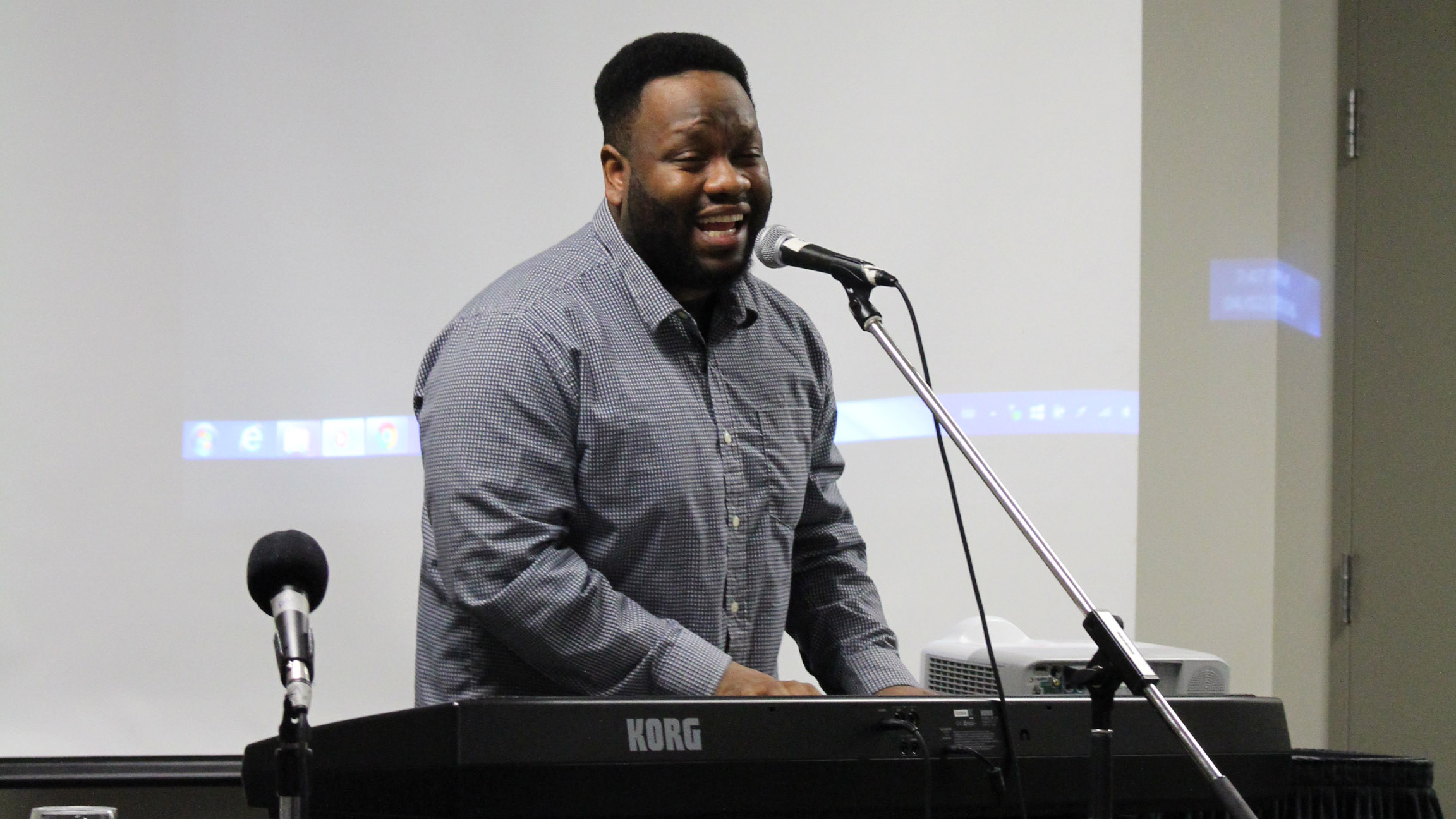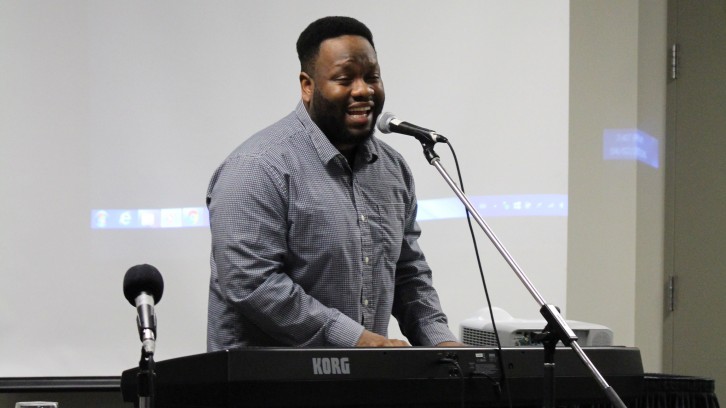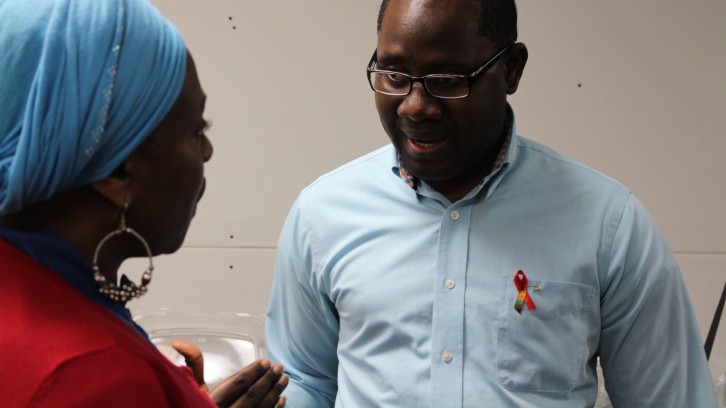Culture
Blacks ‘share struggle,’ despite cultural differences, panel hears
Bolstered by success stories, Dalhousie event centered on the lives of young black men

caption
Owen 'O'Sound' Lee sings at the event "Racism is Killing Us Softly: Narratives of Young Black Men."
caption
Owen ‘O’Sound’ Lee sings at the event “Racism is Killing Us Softly: Narratives of Young Black Men.”“Do not allow your circumstances to consume your purpose. You owe it to yourself to build on the foundation that your parents and your parents’ parents have laid down for you. Resilience is in our DNA,” said Owen “O’Sound” Lee.
Lee’s comment came at the end of his talk at the event “Racism is Killing Us Softly: Narratives of Young Black Men.” It was organized by Dalhousie University’s Black Student Advising Centre and held Thursday night.
Lee, who is the director of the Nova Scotia Mass Choir was joined by Rahime Konneh, a refugee from Liberia, who’s set to graduate from Dalhousie this summer, despite suffering from a visual impairment.
Both men were there to tell their story of overcoming the obstacles put in front of them, but together they also represented two sides of the Canadian black experience. Lee was born in Toronto to Jamaican parents, while Konneh immigrated to Canada five years ago.
That duality proved distinctive as the discussion moved to divisions within the black community caused by cultural differences.
“With different cultures also come a lot of segregation. People stick to what they know. There’s a lot less unity, you don’t reach out to people different from you,” said Lee.
Lee was born in Toronto to Jamaican parents. He can attest to the divide personally.
“For a long time I didn’t consider myself to be Canadian, because my roots are in Jamaica. That’s what I related to,” said Lee. “Moving here to Halifax and seeing that we’ve been in this country for centuries helped me understand there is room for me in this country. I’m beginning to understand that I belong here.”
The divide between immigrants and black Canadians is a reality, said Oluronke Taiwo, organizer of the event.
“It’s fractured because the African Nova Scotian believed the immigrant didn’t have their experience through slavery. Even though we didn’t, coming here is tough. Many of us have to start all over again,” said Taiwo.

caption
Rahime Konneh speaks to an audience member following the panel.Konneh remarked on the opportunities Canada affords to its citizens.
“Where I come from, no one’s heard of student loans. Here in Canada, we have financial incentives that give people of colour access to school,” said Konneh.
And it surprised him to see how few of his peers make the most of those incentives.
“What’s the problem? Is it because our parents had a certain experience and we have to have that same experience?” said Konneh. “We should look at issues positively and get involved so that we may make the most of the opportunities ahead. Let us work collectively to improve our social status.”
Lee suggested the community respect each other’s difference and find other ways to come together.
“Black people share the same struggle, so instead of trying to bridge the gap between differences, what I would do would be to try to understand where we are similar and let that be where we unite,” said Lee.
About the author

Mikkel Frederiksen
Mikkel is finishing his Master of Journalism at the University of King's College. He's fond of watching films, and sometimes writes about them...